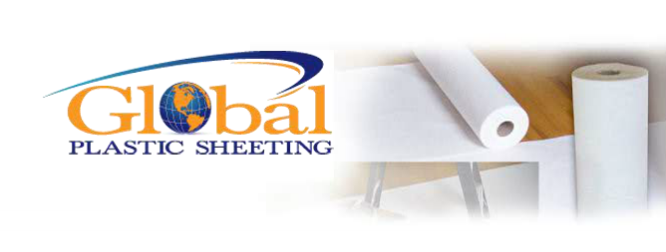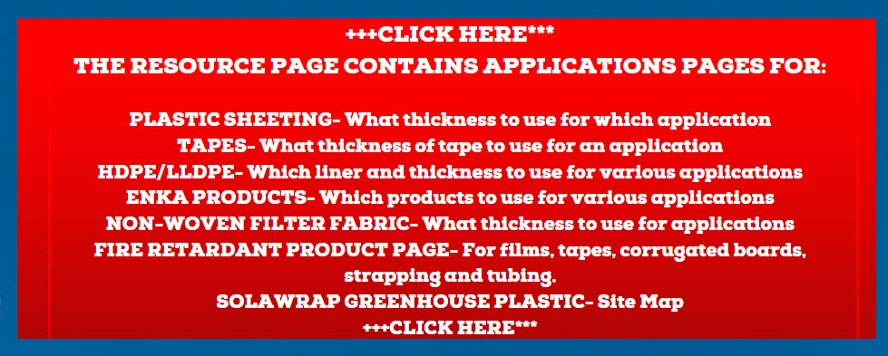Exploring the Longevity of Polyethylene Plastic Sheeting: HDPE, LLDPE, LDPE, and Visqueen
Polyethylene plastic sheeting is a versatile material used for various applications, from construction and agriculture to landscaping and DIY projects. When choosing the right plastic sheeting for your needs, it's crucial to consider its durability and how it withstands exposure to the elements, especially sunlight. In this blog post, we'll delve into the differences between High-Density Polyethylene (HDPE), Linear Low-Density Polyethylene (LLDPE), Low-Density Polyethylene (LDPE), and Visqueen, examining their longevity in outdoor settings, with and without UV additives.
NOTE! Is your polyethylene film a virgin?!!!
All jokes aside, there is a big big difference betweeen virgin polyethylene and recycled polyethylene.Virgin polyethylene is made from new raw materials, offering consistent quality and performance, while recycled polyethylene is eco-friendly but may vary in quality and properties due to its reclaimed nature.
To determine whether a specific plastic sheeting product, including those colloquially referred to as "Visqueen," is made from recycled or virgin polyethylene, it's best to check the product's labeling or consult with the manufacturer or supplier. They can provide information about the composition and characteristics of the plastic sheeting to ensure it meets your specific needs and requirements.
Understanding the Basics: HDPE, LLDPE, LDPE, and Visqueen
-
High-Density Polyethylene (HDPE):
- HDPE is a durable and strong form of polyethylene.
- It's resistant to moisture, chemicals, and UV radiation.
- HDPE is commonly used for agricultural films, pond liners, and outdoor covers.
-
Linear Low-Density Polyethylene (LLDPE):
- LLDPE is more flexible and puncture-resistant than HDPE.
- It's often used in applications requiring stretchability, like plastic bags and greenhouse films.
- LLDPE typically has good UV resistance.
-
Low-Density Polyethylene (LDPE):
- LDPE is the most flexible type of polyethylene.
- It's less resistant to UV radiation and temperature extremes compared to HDPE and LLDPE.
- Common uses include plastic wraps and disposable bags.
-
Visqueen:
- Visqueen is a brand name often used interchangeably with LDPE film.
- It's commonly used as a vapor barrier or for temporary weather protection.
- Like LDPE, Visqueen is not as UV-resistant as HDPE or LLDPE.
Longevity in the Sun and Weather:
-
HDPE: HDPE plastic sheeting is highly resistant to UV radiation and can withstand prolonged exposure to sunlight without significant degradation. Depending on the specific formulation and thickness, HDPE can last for several years outdoors. It is an excellent choice for applications where UV exposure is a concern.
-
LLDPE: LLDPE is known for its good UV resistance. It can endure extended periods of sunlight and weather exposure without rapid degradation. LLDPE films can typically last several years outdoors, making them suitable for agricultural films, greenhouse covers, and outdoor enclosures.
-
LDPE and Visqueen: LDPE, including Visqueen, is less UV-resistant compared to HDPE and LLDPE. When exposed to sunlight and weather conditions, LDPE and Visqueen can degrade more quickly. While LDPE can still be used outdoors, it's better suited for short-term applications or those where UV protection is provided, such as under a roof or as a vapor barrier.
The Role of UV Additives:
Adding UV stabilizers or inhibitors to polyethylene films can significantly extend their lifespan when exposed to sunlight. These additives act as a protective barrier against UV radiation, reducing the material's susceptibility to degradation.
-
HDPE with UV Additives: With proper UV additives, HDPE can last for many years, even in direct sunlight. Some HDPE films with UV protection can endure over a decade of outdoor exposure.
-
LLDPE with UV Additives: LLDPE with UV stabilizers offers excellent longevity and can last for several years in the sun.
-
LDPE and Visqueen with UV Additives: While UV additives can enhance the UV resistance of LDPE and Visqueen, they may not achieve the same level of durability as HDPE or LLDPE. Nevertheless, they can still provide longer-lasting performance compared to untreated LDPE.
In conclusion, when selecting polyethylene plastic sheeting for outdoor applications, it's essential to consider the specific type of polyethylene, its thickness, and whether it contains UV additives. HDPE and LLDPE generally offer superior UV resistance and can last for several years in direct sunlight, while LDPE and Visqueen are better suited for short-term or shaded applications or when UV additives are incorporated for added protection. Assess your project's requirements and conditions to make an informed choice that ensures the longevity of your plastic sheeting investment.



